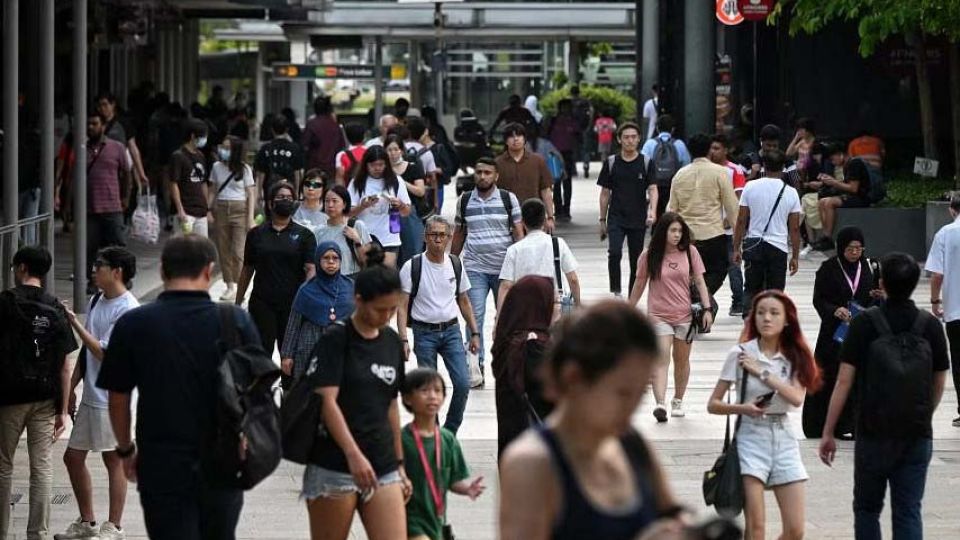July 15, 2024
SINGAPORE – A group of doctors here has called for males in Singapore to get the human papillomavirus (HPV) vaccination, which is currently recommended only for girls and women.
In a statement on June 29, the Society for Men’s Health (Singapore) stated that HPV infection poses a “significant health risk” to men here, noting that infection contributed to incidents of penile, anal and throat cancers, as well as genital warts.
There is currently no routine screening available for men to prevent the progression of HPV-related diseases, and men who are infected by HPV may not be immune to reinfection, noted the non-profit society, which advocates more awareness and policy improvements in men’s health.
As such, vaccinating males would help prevent such diseases and improve overall public health, the society said in its statement, which was authored by 12 urologists and andrologists here.
HPV infection is a sexually transmitted viral infection that is usually asymptomatic and clears up on its own without treatment.
However, some types of genital HPV can lead to cervical cancer in women.
Though the HPV vaccine has been available for men and boys in Singapore since 2020, only girls and women aged between nine and 26 are strongly recommended to get the HPV vaccination to prevent cervical cancer.
In 2019, schools here began offering the HPV vaccine free of charge to female Secondary 1 students as part of the school health vaccination programme, with the Ministry of Health (MOH) noting in 2022 that more than 90 per cent of the cohort each year since has received the vaccine.
The vaccine is fully subsidised for all female Singaporeans aged between nine and 17, and partially subsidised for those aged between 18 and 26.
MOH said in 2019 that HPV vaccinations were not recommended for males, as the incidence of anal cancer was much lower than that of cervical cancer, but it would review its policy when new developments and evidence were available on the vaccine’s clinical and cost effectiveness.
The Society for Men’s Health (Singapore) said there is a growing recognition of the need to provide HPV vaccination for men, citing current scientific literature as well as local health considerations.
Globally, 31 per cent of men are infected by HPV, with 21 per cent by high-risk strains of the virus, a study published in The Lancet Global Health in September 2023 showed. The society also pointed to a study in the December 2023 edition of the Journal of the National Cancer Institute that said instances of oropharyngeal cancers in men worldwide were rising.
“Healthcare providers are encouraged to educate and counsel their male patients on the benefits of HPV vaccination, emphasising its role in preventing HPV-related cancers, genital warts, and promoting overall well-being,” the society said.
Its statement comes after a study on more than 3.4 million people by researchers in the United States – presented at the American Society of Clinical Oncology meeting in June – found that vaccination of males against HPV reduces their risk of head and neck cancers, among others.
Studies in Australia – where HPV vaccinations for both males and females aged 12 and above are part of its national immunisation programme – show a significant decrease in the prevalence of the various strains of HPV as well as a herd immunity effect as a result of vaccinations.
Singapore has no official data on HPV vaccination rates among men and boys here, but the take-up rate among eligible males is estimated to be lower than 5 per cent. This is based on sales data from MSD, which manufactures the Gardasil HPV vaccine, as well as doctor’s prescriptions and consumer market research.
The society recommended that Singapore’s national vaccination programme include routine HPV vaccinations for men.
Consultant urologist and andrologist Ronny Tan, who is president of Society for Men’s Health (Singapore), said cost-effectiveness and impact on public health would be among the factors MOH considers when deciding whether to include a vaccine in the national programme.
But given its benefits, he hopes more men would be aware of the HPV vaccine and be willing to take it, even if it is not included in the national vaccination programme, Dr Tan told The Straits Times.


